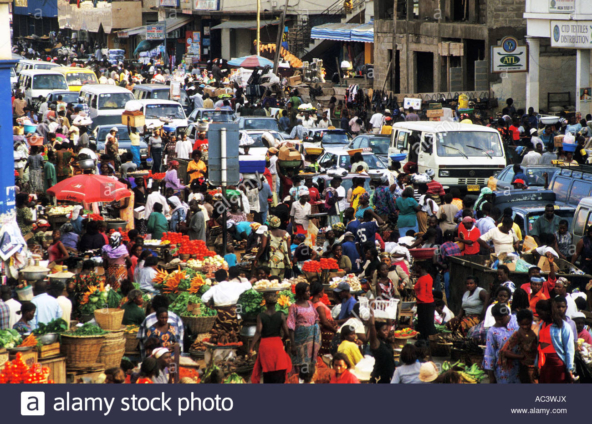A research conducted by Foundation for Security and Development in Africa (FOSDA), has revealed that the Covid-19 pandemic has adversely impacted the livelihoods of about 770,000 Ghanaian workers, especially, women and vulnerable groups across the country.
The research, conducted in April this year, revealed that the pandemic also affected over 80% of small and medium businesses in the country, which translates into 70% of the country’s GDP.
This was made known during a press briefing on the impact of Covid-19 on women and vulnerable groups, in Tamale, organised by Northern Regional Youth Network (NRYN-GH), a youth-led non-governmental organisation (NGO) based in the Northern Region, with support from OXFAM.
Mr Inusah Mohammed, Convener for NRYN-GH, who made a presentation on the report, said “the Covid-19 had affected about 50% of women and vulnerable income levels which was leading to domestic abuse in some households, especially in the northern sector."
He, therefore, urged the government to introduce more social interventions and provide adequate relief packages such as foodstuff and clothing among others, to women and vulnerable groups especially those in the rural areas to help mitigate the socio-economic impact of Covid-19 on them.
Mr Issaka Abdul, a Member of the NRYN-GH, observed that about 29% of vulnerable groups in Northern Ghana still did not have access to National Health Insurance Scheme (NHIS).
He called on the government and other stakeholders to ensure that such persons were registered on the Scheme to help facilitate their easy access to health care.
“Some of these people who have not yet been registered on the NHIS, beg on the streets for their daily income, some of the youthful populace are also head potters while the others have difficulties in paying for rent, making them sleep on the streets," he said.
Mr Haruna Muntala, another Member of the NRYN-GH, noted that research conducted in Greater Accra and Northern regions indicated that about 27% of women in the Northern region and 22% in the Greater Accra region were confronted with domestic violence and its related issues.
He reiterated the need for stakeholders to create more awareness of the effects of domestic violence in communities to help reduce the menace in the country.
Mr Mohammed Seidu Chantimah, Chairman of Resource Centre for Persons with Disability, appealed to NGOs and other corporate bodies to collaborate with the government to continue to support women and vulnerable groups through various interventions throughout the Covid-19 period to enhance their livelihoods.
He stated that the government’s Covid-19 recovery plans and interventions should be vulnerability sensitive to be able to reintegrate them back into society to help achieve the Sustainable Development Goal (SDG) of “Leaving no One Behind”.
Latest Stories
-
Government renames UHAS after late Prof Mills
2 hours -
Wontumi spends night in EOCO custody after failing to meet bail conditions
3 hours -
Students say they ‘regret’ applying to US schools after visa changes
3 hours -
Christopher Bonsu Baah stars on Black Stars debut against Nigeria
3 hours -
Musk ‘disappointed’ by Trump’s tax and spending bill
3 hours -
French paedophile surgeon who abused hundreds sentenced to 20 years in jail
4 hours -
Chelsea win UEFA Europa Conference League after comeback win over Real Betis
4 hours -
Glacier collapse buries most of Swiss village
4 hours -
The Case for Reparations: A focus on Ghana
4 hours -
Nana Ampofoa Initiative tackles menstrual hygiene challenges among underprivileged female prisoners
4 hours -
2025 Unity Cup: Black Stars to settle for third-place playoff after defeat to Nigeria
4 hours -
UHAS to be renamed in honour of late Prof. Atta Mills
5 hours -
Wontumi granted GH¢50m bail by EOCO
5 hours -
Access Bank and DHL forge strategic partnership to empower African SMEs in global trade
5 hours -
AUCB appoints Frank Adu as first Chancellor
5 hours

